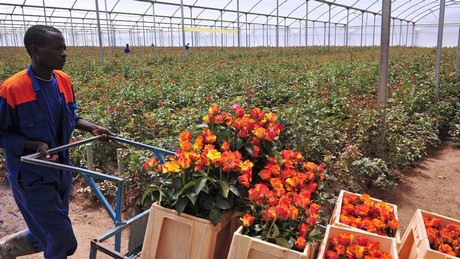
For the time being, Kenyan farms do not seem to be affected by the elections. Harry Rooyakkers of Blooming Innovation, who grows delphiniums and cut hydrangeas in the Kenyan city Giglil, near Eldoret, doesn't experience any unrest. "It certainly depends on the area you are. Stories about unrest are circulating, but the production continues here at the farm. The summer period is always a bit slower, but the flowers are still being shipped out on time. Everything is quite calm till now."
However, the most challenging times might still come. As we speak, the last votes are being counted and Kenyatta seems to have taken a strong lead. Nakuru and Naivasha are often cities where unrest is expected to arise. But, according to Sachin Appachu of Bliss Flora, who grows roses in Nakuru, it is very peaceful at the moment. Also at this farm, everything continues and as if nothing is going on. "95 percent of our workers are at the farm. Some growers went home to vote and will return in a couple of days", says Appacju. According to Appachu, in the entire country it is quite calm at the moment. "A lot is being speculated and many precautionary measurements are being taken."
Ethiopia
The Kenyan elections might also influence the Ethiopian flower sales. Ethiopian rose grower John Magara of Roshanara, for example, experiences better summer sales. "Due to better weather conditions and a new crop, our production increased by 5 percent and the demand over the last weeks was 10 to 15 percent higher compared to last year. I am not sure, but it might be because of the elections in Kenya." Also Marc Holla of Ethiopian farm Holla Roses, heard that some buyers are choosing for Ethiopian roses now. "But we have not noticed it yet", he says.
However, one should not think of enormous volumes, emphasizes Magara, as it is still low season. "Europe is our main market and many people are on holiday at the moment. Soon, they will return, the weather will be colder with more rains, so people want to make it cosy in their homes."
